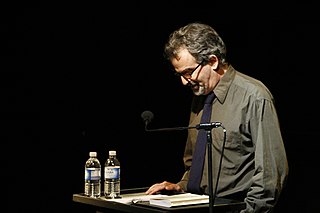A Quote by Jane Hirshfield
I'd say that the middle stanza is closer: that's the place where the poem ranges unexpectedly into a different realm.
Related Quotes
For no one, in our long decline,So dusty, spiteful and divided,Had quite such pleasant friends as mine,Or loved them half as much as I did. [stanza 3]The library was most inviting:The books upon the crowded shelvesWere mainly of our private writing:We kept a school and taught ourselves. [stanza 15]From quiet homes and first beginning,Out to the undiscovered ends,Theres nothing worth the wear of winning,But laughter and the love of friends. [stanza 22]You do retain the song we set,And how it rises, trips and scans?You keep the sacred memory yet,Republicans? Republicans?[stanza 36]
I'm moving - as a person and as a writer - through time. I'm a different age. I'm thinking about different things. I have different life experiences. I'm trying to get closer to being honest. And by closer I mean that at different ages I have different ideas of what the truth is, and at any point I'm trying to express that at that moment in time.
On occasions, after drinking a pint of beer at luncheon, there would be a flow into my mind with sudden and unaccountable emotion, sometimes a line or two of verse, sometimes a whole stanza, accompanied, not preceded by a vague notion of the poem which they were destined to form a part of.... I say bubble up because, so far as I could make out, the source of the suggestions thus proffered to the brain was the pit of the stomach.
A successful poem says what a poet wants to say, and more, with particular finality. The remarks he makes about his poems are incidental when the poem is good, or embarrassing or absurd when it is bad and he is not permitted to say how the good poem is good, and may never know how the bad poem is bad. It is better to write about other people's poetry.



































